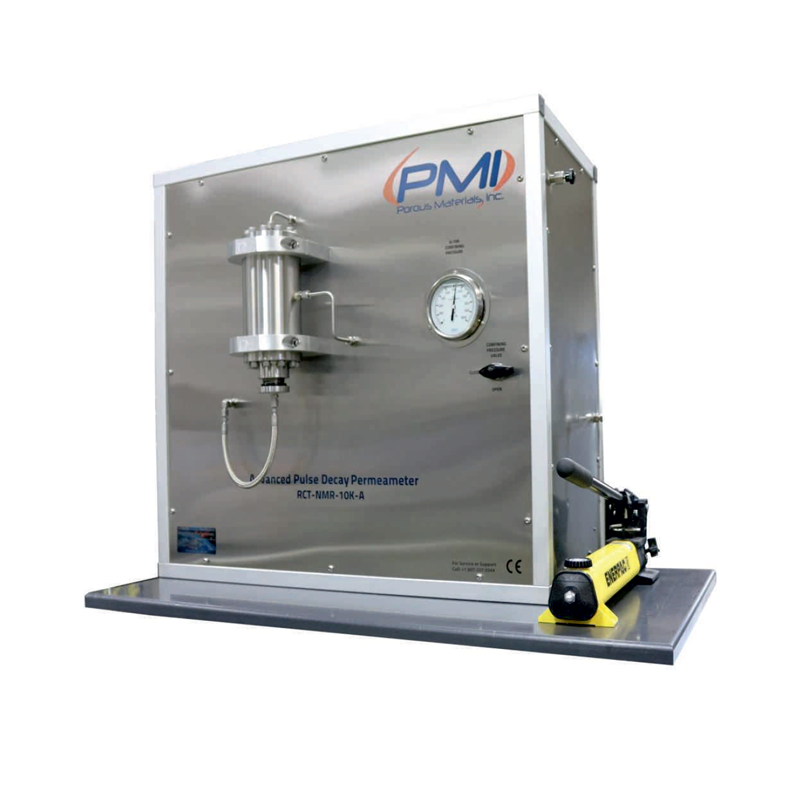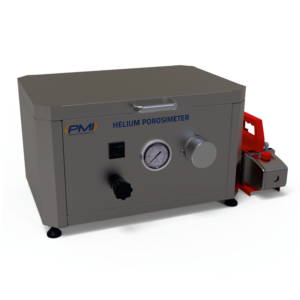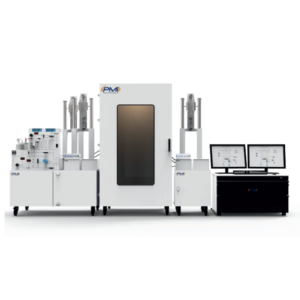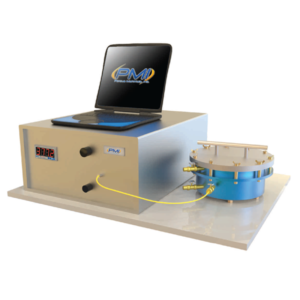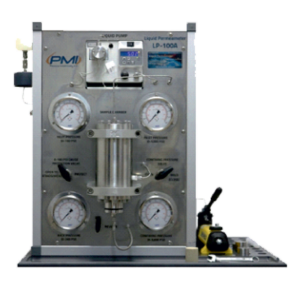Description
The PMI Pulse Decay Permeameter is designed to fully automatic measure the gas permeability for tight rocks, gas or oil shale samples with ultra-low permeability. The gas permeability is determined by pulse decay technique, which allows the measurement more rapid and accurate comparing with conventional steady-state method.
Measurements
When performing a test, the core plug is placed into the core holder and confining pressure is applied. The Pulse Decay Permeameter system, including all reservoirs, lines and the sample, is filled with gas to a high pore pressure, then transmits a small range of differential pressure pulse through the sample. The high pressure reduces the effect of gas slippage, and the use of low differential pressure minimizes inertial effects. The system provided with a software for the data acquisition and system control. During the pulse decay period, the differential pressure across the sample, the downstream pressure, and elapsed time are monitored. The measurement can be operated by either manual or automatic control. With or without considering the adsorption effect, permeability is calculated from a linear regression performed on the pressure time data, the properties of core sample and gas, and gas reservoir volume.
Features
- Rapid and accurate determination of pulse decay permeability
- Confining pressuring up to 10,000 psi
- PMI software for system control and data acquisition
Specification
| Permeability range: | 1 nD to 0.1 mD |
| Confining pressure: | 400 psi to 10,000 psi |
| Core diameter: | 1 inch or 1.5 inch |
| Core length: | 1.5 to 3 inch |
| Temperature: | Ambient |
| Max pore pressure: | 2,000 psi |
| Pressure accuracy: | 0.1% F.S. |
| Air: | 80 psi to 120 psi |
| Power: | 110/220 VAC, 50/60 Hz |
| Size: | 44″ (H) x 27″ (W) x 33″ (D) |
| Power: | 110/220 VAC, 50/60 Hz |
| Size: | 70″ (H) x 35″ (W) x 31″ (D) |

